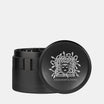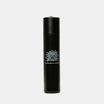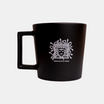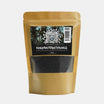Cannabis Sommelier: Training, Tasks and Importance of Cannabis Experts
The most important things at a glance:
What is a Cannabis Sommelier?
Find out exactly what a cannabis sommelier is and how their expertise in evaluating cannabis strains makes a decisive contribution to quality assurance and the selection of the best products for consumers.
Learn moreThe Tasks of a Cannabis Sommelier
Discover how Cannabis Sommeliers ensure that cannabis products meet the highest standards through their precise customer advice, strict quality assurance and continuous training.
Learn moreEducation and training to become a cannabis sommelier
Find out how to train to become a cannabis sommelier – from the basics of cannabis science to specialized courses and ongoing training.
Learn moreWhen it comes to cannabis, experts are needed who not only recognize the subtle differences between different varieties, but also have the comprehensive knowledge to evaluate the quality and effects of cannabis products. Similar to sommeliers in the wine industry, cannabis sommeliers are professionals who deal intensively with the sensory aspects, cultivation and effects of cannabis. But what exactly makes this profession so special? What training and knowledge are required to be recognized as a cannabis sommelier? And what tasks and responsibilities do the experts have to deal with?
In this article, we'll dive deep into the world of cannabis sommeliers and explore how they contribute to the quality assurance, selection and recommendation of cannabis products. Whether you're thinking about becoming a cannabis sommelier yourself or just want to learn more about this exciting career, you'll find all the answers you need here.
What is a Cannabis Sommelier?
A cannabis sommelier is an expert who specializes in evaluating and evaluating cannabis products. The job of a cannabis sommelier goes far beyond mere tasting and includes in-depth knowledge of different cannabis strains, how they are grown, the chemical components and their effect on the human body.
Cannabis sommeliers play an important role in the cannabis industry, especially in quality control and assurance. They not only evaluate the organoleptic properties such as aroma, taste and consistency of the products, but also ensure that the products meet legal requirements and quality standards. This includes the analysis of cannabinoids such as THC and CBD, terpenes and other active ingredients that influence the effects and aroma of the cannabis.
In countries where cannabis is medically or regulatory legal, cannabis sommeliers often take on roles in pharmacies, specialty shops or cannabis producers. They advise customers on the best products for their needs, help select the right strains and ensure that consumers have the best experience with their cannabis products. The job of a cannabis sommelier is therefore not only varied and exciting, but also crucial for the further development and establishment of the cannabis industry.
Our product recommendations for your more pleasant smoking experience
The Tasks of a Cannabis Sommelier
The tasks of a cannabis sommelier are varied and range from analyzing and evaluating cannabis products to customer advice and quality assurance. Here are some of the main tasks that make this job so special:
1. Product evaluation and analysis:
An important part of a cannabis sommelier's job is the thorough evaluation of cannabis flowers and products. This includes:
- Visual inspection: Checking the flowers for quality, color, trichomes (resin glands) and possible defects such as mold or contamination.
- Smell and taste test: Analysis of the aroma and taste profile of the cannabis flowers. Terpenes, which are responsible for the aroma and taste, play an essential role here.
- Chemical analysis: Examination of cannabinoid and terpene levels through laboratory testing to ensure that products meet stated specifications.
2. Advice and customer service:
Cannabis sommeliers are often in direct contact with customers and patients, especially in pharmacies or cannabis stores. Their tasks in this field include:
- Personalized advice: Helping customers choose cannabis products that meet their individual needs, whether for medical or recreational use.
- Explanation of effects: Information about the different cannabinoids and terpenes, their effects and how they can affect well-being or the treatment of specific ailments.
3. Quality assurance:
Ensuring that cannabis products meet the highest quality standards is a central part of the job. This includes:
- Verify origin: Ensure that products come from reliable and verified sources.
- Compliance: Verifying that products meet all legal requirements and safety standards.
4. Further education and training:
A cannabis sommelier must constantly stay up to date with the latest developments in the cannabis industry. This includes:
- Participation in training and courses: Continuous training in new cultivation techniques, legal changes and product innovations.
- Training others: Sharing expertise with other employees or customers to promote greater awareness and understanding of cannabis products.
These tasks make the job of a cannabis sommelier both challenging and incredibly versatile. The combination of deep specialist knowledge, sensory expertise and customer focus is crucial for success in this professional field.
Education and training to become a cannabis sommelier
Training to become a cannabis sommelier is crucial to acquiring the necessary knowledge and skills. Since the industry is still relatively new and is constantly changing due to ongoing legalization, there are several ways to prepare for this profession. Here are the most important aspects of education and training:
1. Basics of Cannabis Science
Before focusing on specializing as a cannabis sommelier, it is important to have a solid foundation in the basics of cannabis science:
- Cannabinoids and terpenes: Understanding the chemical compounds in cannabis that are responsible for its effects and aroma, such as THC, CBD, and the variety of terpenes. This knowledge is particularly relevant when assessing product selection and the quality of medicinal cannabis.
- Cultivation methods: Knowledge of the different cultivation methods, including indoor, outdoor and greenhouse cultivation, and their impact on the quality of the final product. This knowledge is essential to correctly assess the impact on the aroma and potency of cannabis products.
- Processing and Extraction: Knowledge of cannabis processing methods, including drying, curing and extraction techniques, is critical to assessing product quality and final results.
2. Specialized training programs
There are now specialized training programs and courses tailored to the training of cannabis sommeliers. These programs offer:
- Certificate courses: Courses that provide basic and specialized knowledge, often with final certificates that are beneficial to job applicants.
- Practical training: Hands-on training where aspiring sommeliers learn to evaluate cannabis products and advise customers. This often includes evaluating medical cannabis, which is particularly important for making an informed product selection.
3. Gain experience
Practical experience is an essential part of the training. This can be achieved through various means:
- Internships: Work in dispensaries, cannabis shops, or cultivation facilities to gain practical knowledge. Years of experience in the industry can provide a significant advantage in career development.
- Attend workshops: Attend workshops and trade shows to learn about the latest developments and techniques in the cannabis industry and to find out about new trends such as flavors.
4. Ongoing training
The cannabis industry is constantly evolving, and it is important that cannabis sommeliers keep their knowledge up to date:
- Continuing Education Courses: Regularly attend continuing education courses to stay informed about new research, regulatory changes, and market trends. This is especially relevant in times of advancing legalization and the changing regulatory landscape.
- Networking: Participating in industry networks and professional associations to exchange ideas with other professionals and follow new developments. Exchanging ideas with long-standing experts can help deepen your own expertise and improve the quality of advice.
The combination of theoretical knowledge and practical experience forms the basis for a successful career as a cannabis sommelier. The industry offers numerous opportunities for specialists who are willing to continuously train and deepen their expertise.
Maybe also interesting for you?
Frequently Asked Questions about the Cannabis Sommelier
Here we answer some of the most frequently asked questions about the exciting field of cannabis sommeliers. Whether you want to find out more about the daily tasks or are wondering how you can get a foothold in this professional field yourself - here you will find some answers and insights.
A cannabis sommelier evaluates and recommends cannabis products, including flowers, extracts and oils. They ensure that customers find the best product for their needs, whether for medical or recreational use. These experts are completely specialized in the topic of cannabis, often work in pharmacies or cannabis shops and offer comprehensive advice.
A cannabis sommelier should have in-depth knowledge of cannabinoids, terpenes and cultivation methods. Specialized training or education is helpful, as is practical experience in the industry, for example as a budtender or in cannabis shops.
Cannabis sommeliers advise customers on cannabis products, evaluate their quality, and test flavors and effects. They help with the selection of medical cannabis and advise on cannabis oils and other products to give customers the best smoking experience or optimal effect.
A thorough cannabis education is essential as it provides both theoretical knowledge and practical skills to ensure you stay up to date in a rapidly evolving market and develop your cannabis valuation expertise.
A cannabis sommelier needs extensive knowledge of cannabis, its varieties, flavors and effects, as well as its medicinal use. Analytical skills are important to accurately evaluate the quality of the products. Many years of experience and constant learning are also beneficial to be successful as an experienced cannabis connoisseur.
Our Medusafilters conclusion
In this blog article, we have taken a detailed look at the job profile of the cannabis sommelier - an expert who impresses with extensive specialist knowledge and many years of experience. We have examined the tasks, training and importance of these specialized professionals and explained why their role in the cannabis industry is becoming increasingly important.
In addition to specialist knowledge, the quality of the products used is also crucial when it comes to cannabis. For consumers - whether for medical or recreational use - high-quality products make the difference. The right equipment can significantly influence the effect and aroma of the cannabis flowers.
Medusafilters offers some useful products that make smoking more pleasant and effective. Our activated carbon filters, for example, help you to inhale fewer pollutants, while the premium papers and ceramic grinder ensure that you can enjoy the best quality flowers. With the right products, you can ensure that your experience is not only safe, but also particularly pleasant. Take a look around our extensive shop and find the right products for your needs!
























